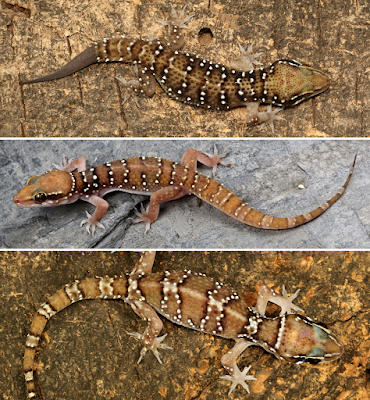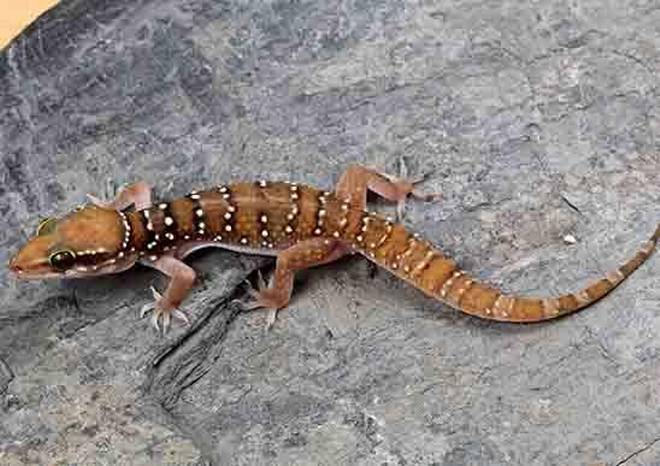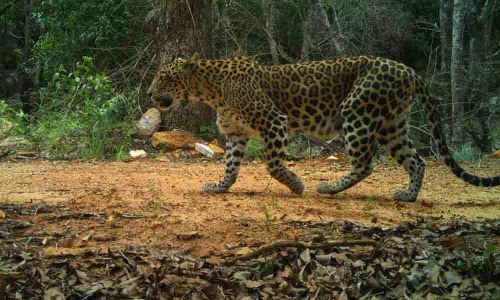They were always thought to be a single species commonly known as the ‘termite hill gecko’, chocolate brown in colour and small enough to fit into your palm. But thanks to more advanced genetic techniques to identify news species, the termite hill geckos are now scientifically split into 3 species – the Whitaker’s, Sahgal’s and southern termite hill geckos found in India, Pakistan and Sri Lanka.

The two new species have been each named in honour of two reputed names in the field of wildlife. Hemidactylus sahgali in honour of Bittu Sahgal, editor and founder of Sanctuary Asia magazine and Hemidactylus whitakeri to recognize the efforts of Romulus Whitaker, herpetologist and conservationist for their contribution to wildlife conservation.
The team of researchers included Zeeshan Mishra from National Centre for Biological Sciences (NCBS), Bengaluru, Gaurang Gowande of Fergusson College, Pune, Mayuresh Ambedkar (NCBS), Rishikesh Patil (Bangalore) and Harshil Patel (Veer Narmad South Gujarat University, Surat).
Read More: 4 New Species of Burrowing Frogs Discovered in India
Hidden Identities
The termite hill geckos are commonly found in India, Pakistan and Sri Lanka but in the past as scientists relied mostly on physical attributes to describe a species, many with minute differences were bracketed under the same species name. Earlier, it was assumed that these lizards too belonged to Hemidactylus triedrus. However, after conducting genetic tests and further analyzing scientifically, the new species were classified.
Gowande said, “We conducted genetic test, micro CT scan of the skull of the new species and some more scientific analysis. These helped us in discovering a species new to science.”
The specimens were first examined at Bombay Natural History Society in Mumbai. According to Patel, this was the foundation for the students to plan the study and sampling strategy. The next steps were field work to collect tissue samples across Maharashtra, Karnataka, Andhra Pradesh, Gujarat, Tamil Nadu and Pondicherry, generation of micro CT scans of the heads of lizards to study the skull morphology, literature review and genetic analysis. This finally led to the description of the two new species.
Read More: Photographers Discover a New Primate in India
Samples from south Karnataka and the Nilgiris district in Tamil Nadu were named after herpetologist Romulus Whitaker and the distinct samples from from Maharashtra, Gujarat and parts of Pakistan clustered together have been named after Bittu Sehgal.
Separating Hemidactylus whitakeri from Hemidactylus triedrus was a difficult task. Certain characters like number of rows and the shape of the bumpy scales on the back called tubercles were the factors which helped in deciding on the separation. These were conclusively proven by the genetic data and micro CT scan of the skulls.

According to these researchers, the biodiversity in India is largely unexplored and comprises many such unknown, or distinct but undescribed species. Hence at the regional level, the biodiversity is underrated.
In the words of senior zoologist Hemant Ghate, “There are many similar looking species but if additional work is done, it will be in real term called advancement of science. The researchers have made a new addition to science and it is commendable.”
Their research was published in the international journal, Peer J, on August 2nd’18.
Read More: New Lizard Species Discovered in Mumbai
Featured Image of Whitaker Gecko via The Hindu









